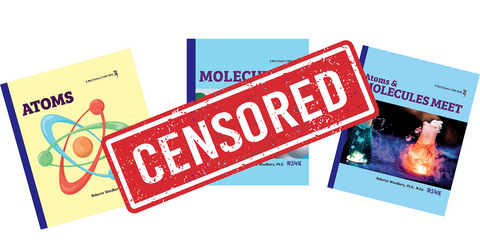When we think of geology or astronomy, we might picture rocky landscapes or twinkling stars. But there's an invisible thread connecting these seemingly different fields: chemistry. Understanding the chemical principles underlying both Earth and space sciences is crucial for unraveling the mysteries of our planet and the cosmos beyond. Let's explore why chemistry is the key to unlocking these scientific realms and why it's so important for students to learn chemistry early in their education.
Chemistry: The Universal Language of Science
Chemistry provides the fundamental building blocks for understanding both geological and astronomical phenomena. Here are a few examples:
- Mineral Formation: Geologists rely on chemistry to explain how different minerals form under varying conditions. The same chemical principles that describe crystal structures on Earth help astronomers understand the composition of distant planets and asteroids.
- Spectroscopy: This powerful tool, rooted in chemistry, allows both geologists and astronomers to analyze the composition of materials without physically touching them. Whether it's identifying minerals in a rock sample or determining the elements present in a distant star, spectroscopy bridges the gap between Earth and space sciences.
- Origin of Life: The study of organic molecules found in meteorites and on other celestial bodies draws on principles of chemistry. This research not only informs theories about the origins of life on Earth but also guides the search for potential life elsewhere in the universe.
Why Early Chemistry Education Matters
Given the critical role of chemistry in understanding our world and beyond, it's essential that we inspire and equip the next generation of scientists early in their education. Here's why:
- Foundational Knowledge: Chemistry provides the basic language and concepts needed to understand more complex phenomena in geology, astronomy, and environmental science.
- Problem-Solving Skills: Chemistry teaches critical thinking and analytical skills that can help students solve real-world problems like climate change and pollution.
- Interdisciplinary Approach: Early exposure to chemistry helps students see the connections between geology & astronomy, fostering a more holistic understanding of the natural world.
- Tackling Global Challenges: Many of the most pressing issues facing our planet, such as climate change, require a deep understanding of chemistry. By learning chemistry early, students are better equipped to contribute to solutions for these complex problems.
Preparing the Next Generation of Problem Solvers
The challenges facing our planet – from resource scarcity to environmental issues – require innovative solutions that draw on a deep understanding of chemistry, geology, and astronomy. By preparing today's youth with a strong foundation in chemistry, we're equipping them to tackle these global issues head-on. Whether it's developing new sustainable materials, discovering alternative energy sources, or planning for space exploration, the scientists of tomorrow will need to draw on chemical knowledge that spans Earth and space. Let's commit to fostering a love for chemistry in young minds. By doing so, we're not just preparing them for future careers – we're empowering them to become the problem-solvers our world desperately needs. Remember, every great scientific breakthrough starts with curiosity and a solid understanding of fundamental principles. By emphasizing the role of chemistry in both Earth and space sciences, we can inspire a new generation of scientists ready to explore, discover, and innovate across the sciences.
So the next time you look at a rock or gaze at the stars, remember: there's a whole world of chemistry connecting it all. And by understanding that chemistry, we're one step closer to unraveling the mysteries of our universe and solving the challenges facing our planet.





Comments (0)
There are no comments for this article. Be the first one to leave a message!